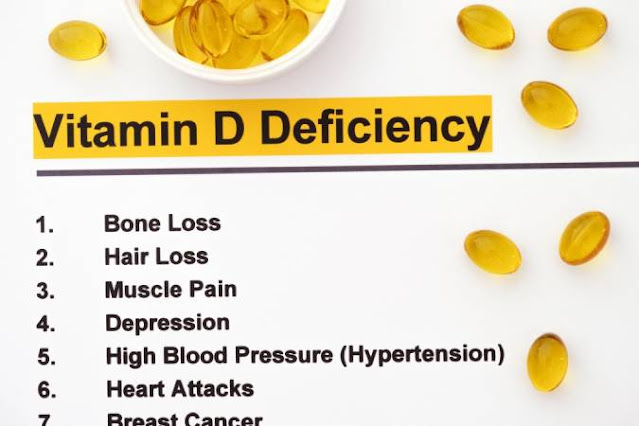
Vitamin D has many capabilities in the frame and maintains
excellent bone, brain, and coronary heart health. In reality, evidence suggests
that decreased nutrition D tiers are related to melancholy.
However, this does not suggest that obtaining extra
nutrition D alone can save you or deal with depression. Here's what you need to
recognize about the relationship between diet D and melancholy.
Vitamin D deficiency can contribute to despair. For example,
thirteen studies on more than 31,000 participants observed that humans with
nutrition D deficiency had an elevated danger of melancholy compared to people
with better stages of nutrition D.
"Low levels of nutrition D are associated with
principal and minor melancholy, temper disturbances, and greater rapid
cognitive decline," says Robin Foroutan, MS, RDN, HHC, Integrative
Medicine Registered Dietitian and spokesperson for the Academy of Nutrition and
Dietetics.
Low diet D degrees can impair cognitive features because
there are nutrition D receptors in regions of the mind that are chargeable for
temper and conduct, including the improvement of despair.
The typical grownup needs about six hundred to 800 global
gadgets (IU) of nutrition D in step with day. For reference, a serving of
salmon includes approximately four hundred IU. However, few foods naturally
incorporate sufficient nutrition D to get your day-by-day dose.
The maximum common way to do that is thru sunlight, as nutrition
D is synthesized through the skin in response to ultraviolet light. You ought
to goal for around 15 minutes of sun exposure between 10 a.M. And three p.M., three
instances a week, to get enough nutrition D.
Does ingesting more excellent nutrition D help fight despair?
Improving diet D degrees can promote universal health and a whole
experience of proper being. However, studies have no longer confirmed that
obtaining extra diet D is a sufficient standalone treatment for despair.
And 2019, evaluate of patients with depression who had been
supplemented with 70 micrograms (approximately 2,800 IU) of nutrition D3 also
discovered no exchange after supplementation.
"We don't have sufficient evidence to suggest this as a
primary-line treatment for despair," says Dorothy Sit, MD, a psychiatrist
at Northwestern Medicine.
Instead, your doctor will, in all likelihood, advocate a
combination of therapy and medication as the first step in treating depression.
Combined with a few fundamental ways of life modifications, such as everyday
exercising and wholesome eating, you may be capable of reducing depressive
signs and symptoms.